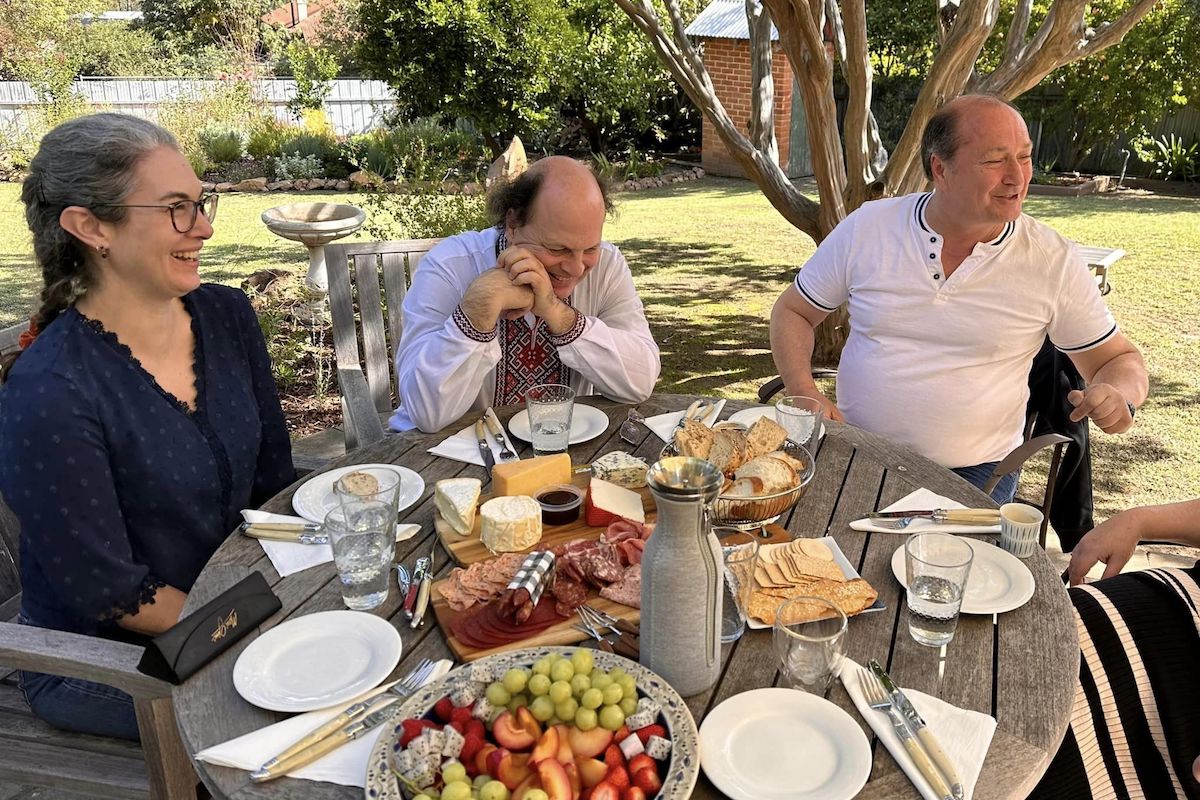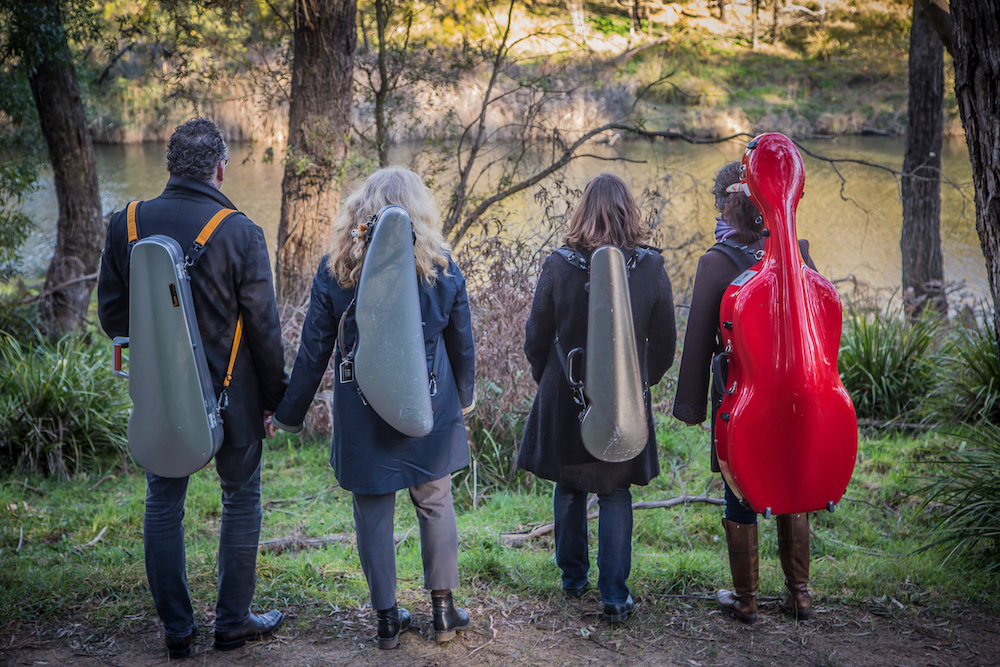For someone who has just flown into Australia from Dusseldorf and caught a train from Sydney to Orange, the Dutch violist Emile Cantor is sounding remarkably chipper.
“The weather here certainly helps,” he says, stepping out of rehearsal for the first of a series of regional concerts with Acacia Quartet. “It is beautiful here at this time of year. Two days of sunshine is all I need to acclimatise!”
Cantor and old friend and cellist Laurentiu Sbarcea have flown in to beef-up the Acacia foursome into a string sextet that will tour the Riverina and South-West NSW with two beloved works for strings – Dvořák’s String Sextet in A major, Op. 48, composed in 1878, and Brahms’ String Sextet No. 2, Op. 36, written some 15 years prior. These pieces bookend the world premiere of a new work from Australian composer Lyle Chan.

Acacia Quartet’s Anna Martin-Scrase with Emile Cantor and Laurentiu Sbarcea. Photo © Acacia Quartet
“This is my fourth trip to Australia, but Laurentiu hasn’t been here since he was 17,” says Cantor. “I don’t know if he minds me telling this, but he was here as a kid, really, playing with the pan pipe player Gheorghe Zamfir. That allowed him to earn perhaps 10 times more money than his parents earned in a whole year back in Romania in those days, but he says he doesn’t recollect anything about the trip other than a girl he met!”
The tour is something of a reunion also for Cantor and Acacia, with whom he has had a long association as a mentor. He and Acacia violist (and fellow Dutchman) Stefan Duwe go back decades. Cantor was one of his teachers.
“When Stefan moved to Australia and started the Acacia Quartet, he asked me to come out here and help with repertoire and coaching and so on. I did that twice and it was a really nice experience. Coming back now is really like meeting with old friends. Today is our first rehearsal but it already feels like a real musical conspiracy.”
The pairing of Dvořák and Brahms is, in part, a celebration of friendship, Cantor explains. “The Dvořák piece is one of the really happy pieces he wrote, written at a time when he was happy in himself. And Brahms was a great admirer of Dvořák in those times and they became great friends, travelling together and helping each other in various ways.”
It was with Brahms’s support, Cantor notes, the Dvořák was able to launch himself into the international spotlight, where he remains to this day.

Acacia Quartet. Photo supplied
The Brahms sextet also comes from a happy place. “It has everything to do with love,” Cantor explains, adding that the work features musically-coded references to the name of the woman the composer fell in love with, the German soprano Agathe von Siebold.
“Music to express so many emotions – friendship, love, fear,” says Cantor. “It’s really is a wonderful profession that we have to be able to play music like this almost every day.”
Lyle Chan’s new work, which serves as a bridge between the Dvořák and Brahms works is also friendship themed.
“When I learned that my new piece would be programmed between the sextets by the close friends Brahms and Dvořák, I knew right away what my job was – to provide a modern music that contrasted with their sumptuous romantic sounds and be a pleasurable change of mood, yet without breaking the magical spell that their music weaved,” says Chan.
“Above all, their friendship expands to become the theme of the concert and my new piece taps into that. Acacia Quartet have been my closest musical collaborators, and we bring new friends to each other all the time. I feel like my music’s role is to invite their two friends, Emile and Laurentiu, into a great conversation that we’ve been having for years.”
To play music inspired by friendship and amity is a privilege, Cantor concludes. “These are times when we need positive messages. Music allows us to dream of a better world – for a little while, at least.”
Acacia Quartet with Emile Cantor and Laurentiu Sbarcea perform at South West Music Conservatorium, Deniliquin, 20 April; Tocumwal War Memorial Hall, 21 April; St Alban’s Cathedral, Griffith, 24 April; Leeton Museum and Art Gallery, 26 April; Tarcutta Memorial Hall, 28 April and Orange Regional Conservatorium, 3 May. Visit Music in the Regions for more details and bookings.











Comments
Log in to join the conversation.